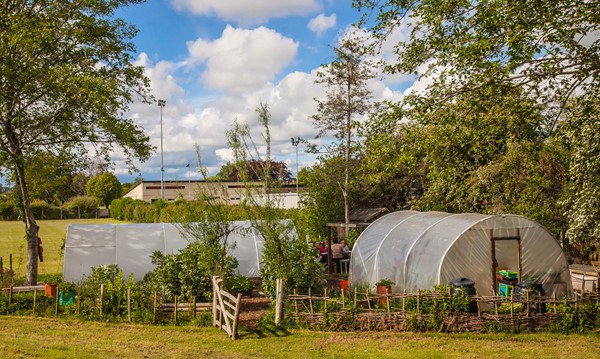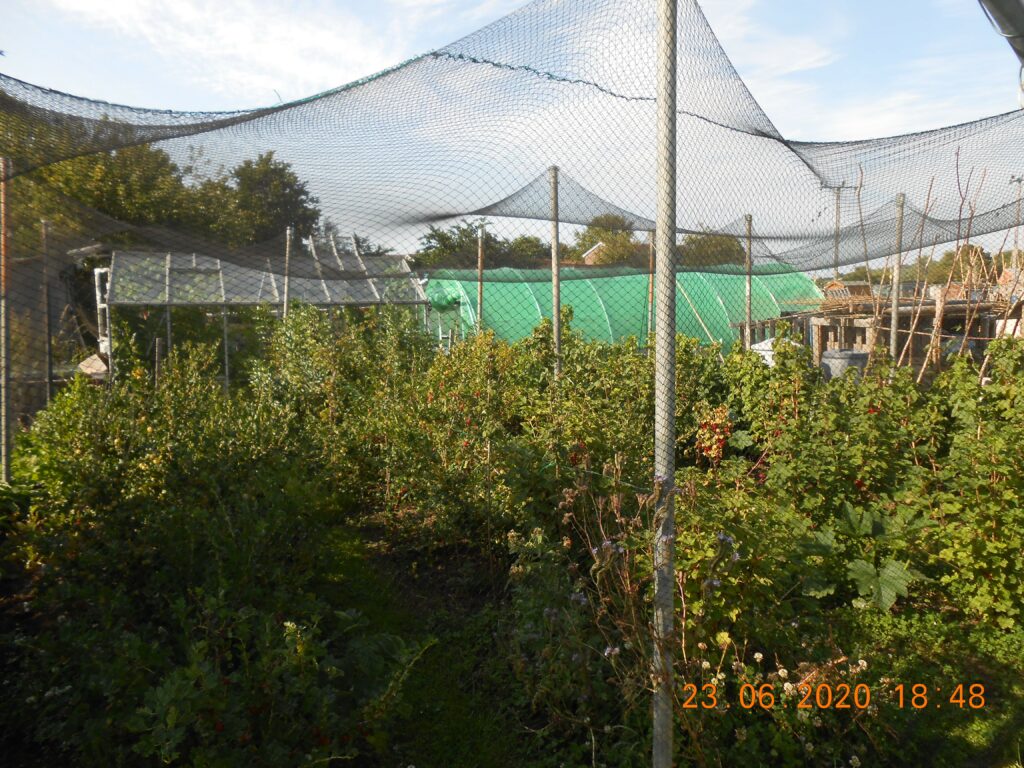Photo: Edible Gardens, St Mary’s Primary School
Seeding our Future and Transition Town Bridport will be hosting ‘Open Veg and Fruit Gardens’ on Wednesday 19 May between 2- 5 pm, to exchange information about what some food growers in Bridport are doing to adapt to climate change
There will be an opportunity for you to visit three of several Bridport venues to talk to the gardeners about the methods and crops they are using to help adapt to climate change, and to share experience and ideas you might have.
Bridport Cohousing Community plot at Flaxhayes – Lin Scrannage
Lin hopes to inspire people about using and saving heritage seed and why this is important in the light of climate change and increasing industrialisation of agriculture. She will also explain the ethos behind the Bridport Cohousing allotment and how members share food growing and what future plans are.
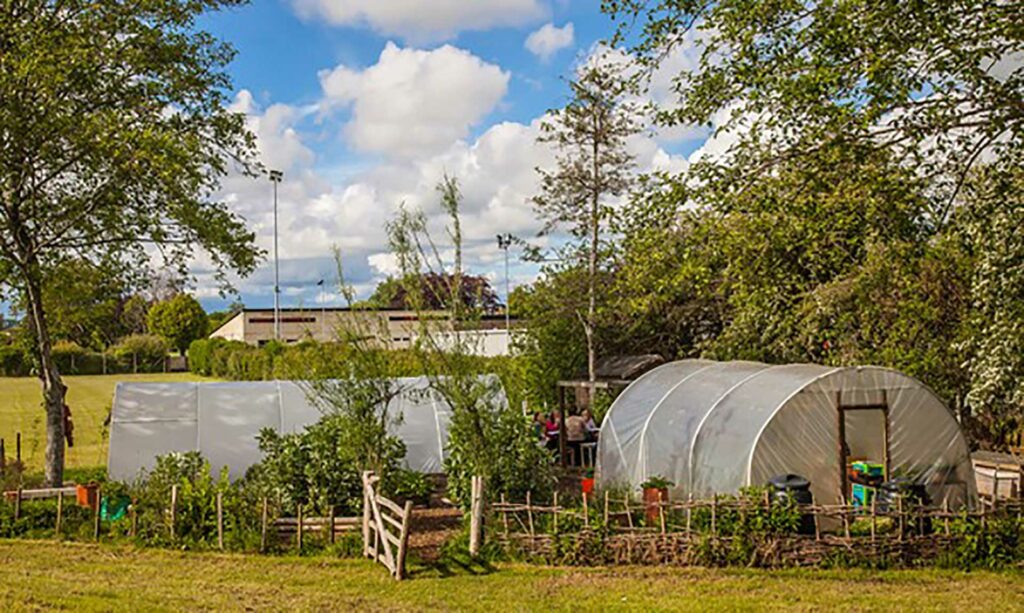 Edible Gardens at St Mary’s Primary School – Sarah Wilberforce
Edible Gardens at St Mary’s Primary School – Sarah Wilberforce
Visitors can expect to see a wide range and stages of plants raised early and being held back or planted out. Broad bean, spring onion, salad harvests and fruit trees in blossom. They will talk about extending seasons and growing new plants for climate change. This is a school garden for kids and the new thing this year is a fruit orchard and foraging hedge. We can chat about all the other things in place to make growing successful and eating fun.
L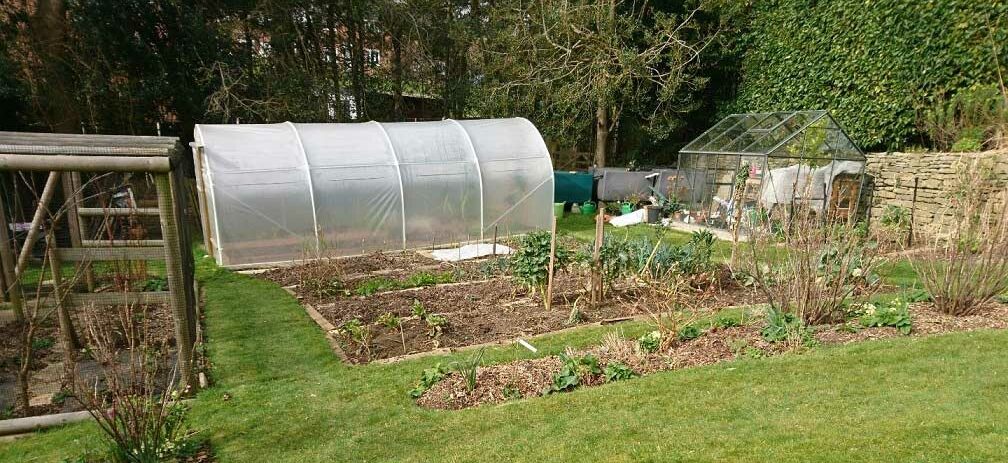 ynchetts Sustainable food garden – Alan and Linda Heeks
ynchetts Sustainable food garden – Alan and Linda Heeks
Alan and Linda have an allotment-sized area for veg and fruit in their garden on the edge of Bridport. Sustainable features include: climate-adaptive crops such as a Szechuan pepper tree, and beans for protein; 20-foot polytunnel; and rainwater harvesting.
They are using some alternative approaches, such as the biodynamic lunar planting calendar, and the Perelandra attunement method to handle pests and other problems.
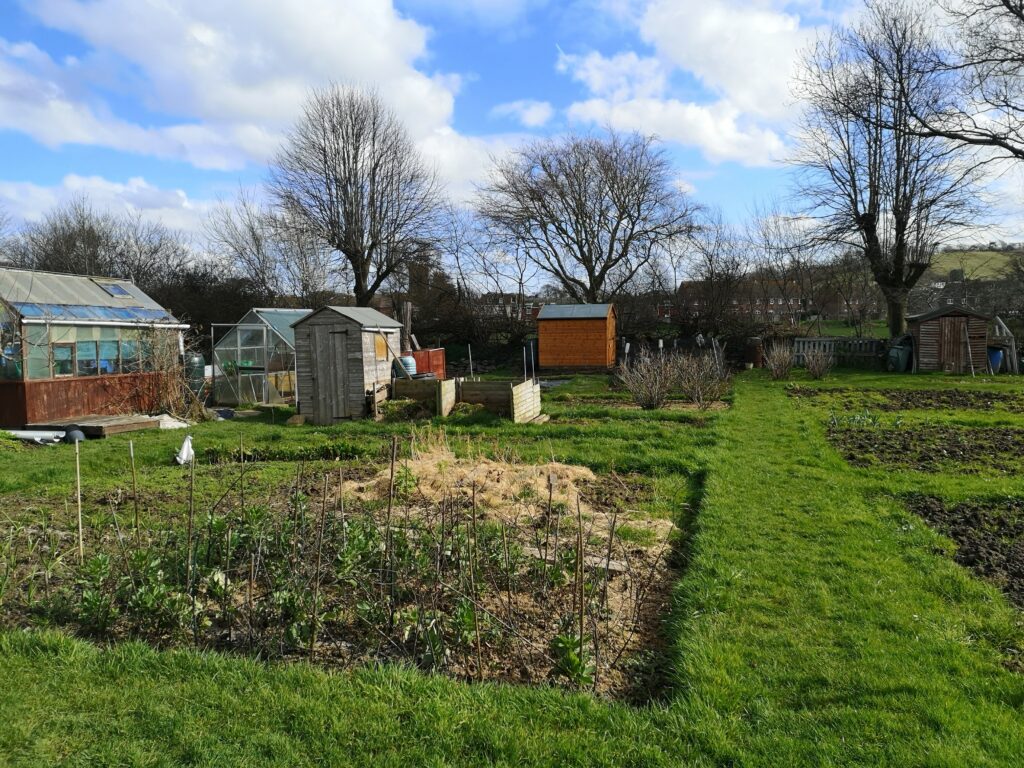 Skilling new Forest garden plot – Mandy Rathbone
Skilling new Forest garden plot – Mandy Rathbone
Mandy’s main focus will be her mini-forest-garden project, which is in the early stages. She will briefly talk about the forest garden concept and why she decided to try it out on one section of her allotment. Then go on to talk about why and what she is hoping to plant, this year and going forward.
Mandy can also chat about the rest of her allotment including various climate-related challenges she deals with which e.g. frequent storms and flooding.
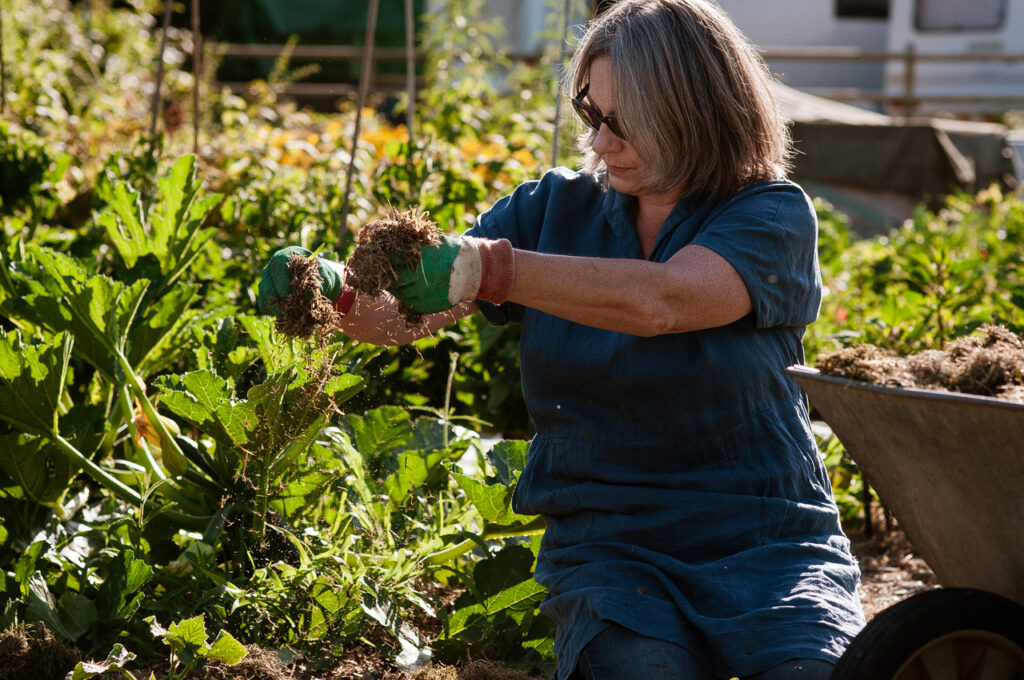 Symene plot: Rachel Millson
Symene plot: Rachel Millson
This year I am attempting to increase yields by using a no-dig approach to build soil fertility and by planning crops more efficiently. I continue to experiment with more unusual veg, including perennials which I grow with annual flowers around a seating area. In the communal area we are developing a forest garden where we hope to build an outdoor kitchen. I am also continuing to build skills in food preservation.
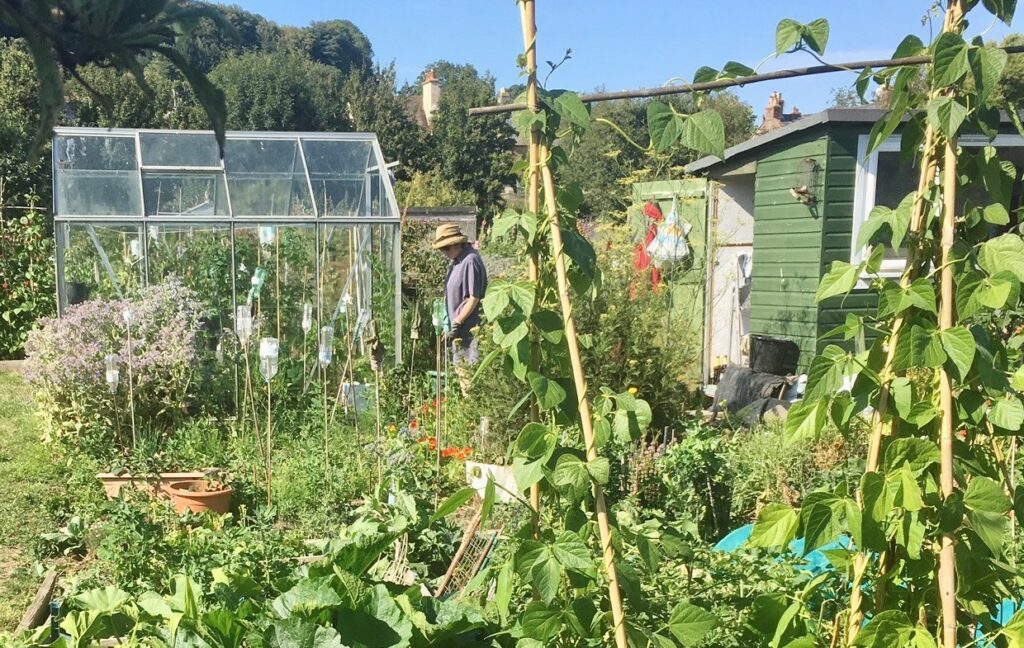 West Road Allotments, Plot 28. Julie Penfold
West Road Allotments, Plot 28. Julie Penfold
Plot 28 is a no-dig/hugelkultur experiment – I have deliberately raised the soil level, I mulch and use green manures. Because the site is prone to flooding I like to have no bare soil. Last spring I added a greenhouse, hoping to extend the growing season. My aim is to create a ‘virtuous circle’, meaning that everything of value is re-purposed and re-invested to the benefit of the plot.
The event is free but it is essential to book your ½ hour slot to visit three of the venues via Eventbrite. A maximum of 6 visitors will be allowed at any one time at any location, socially distanced. Visit at your own risk. Directions will be sent after you have booked your slot.
